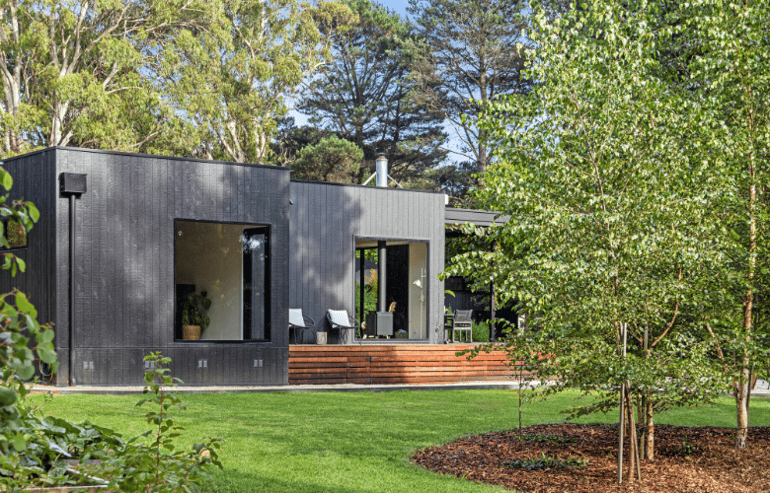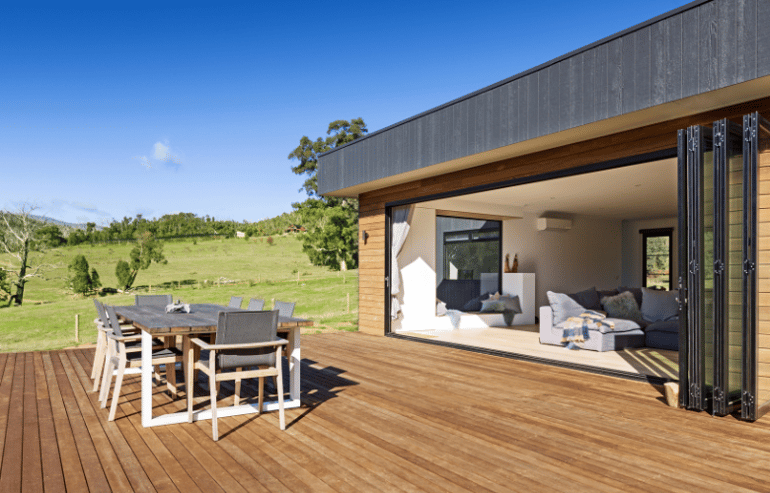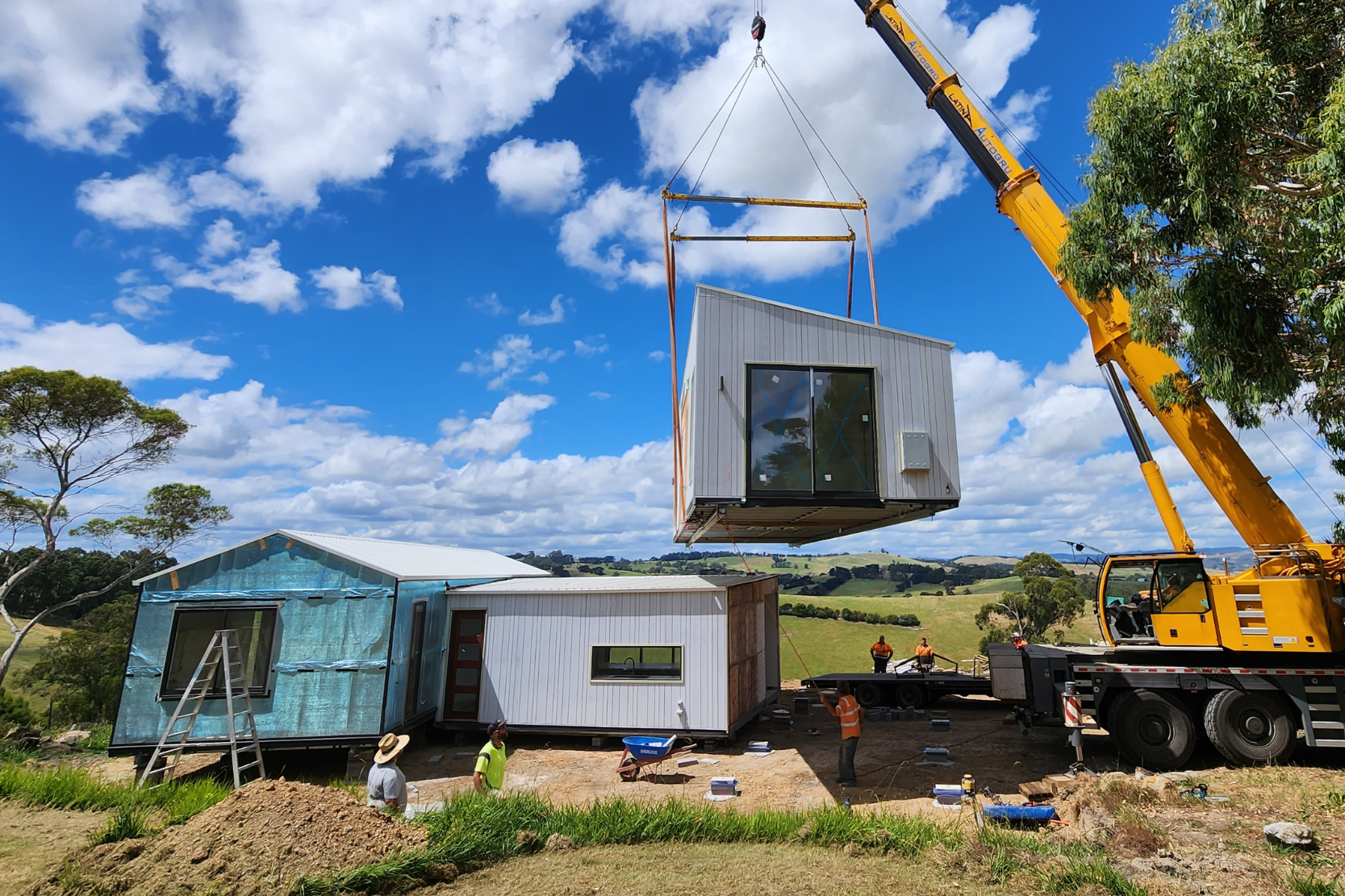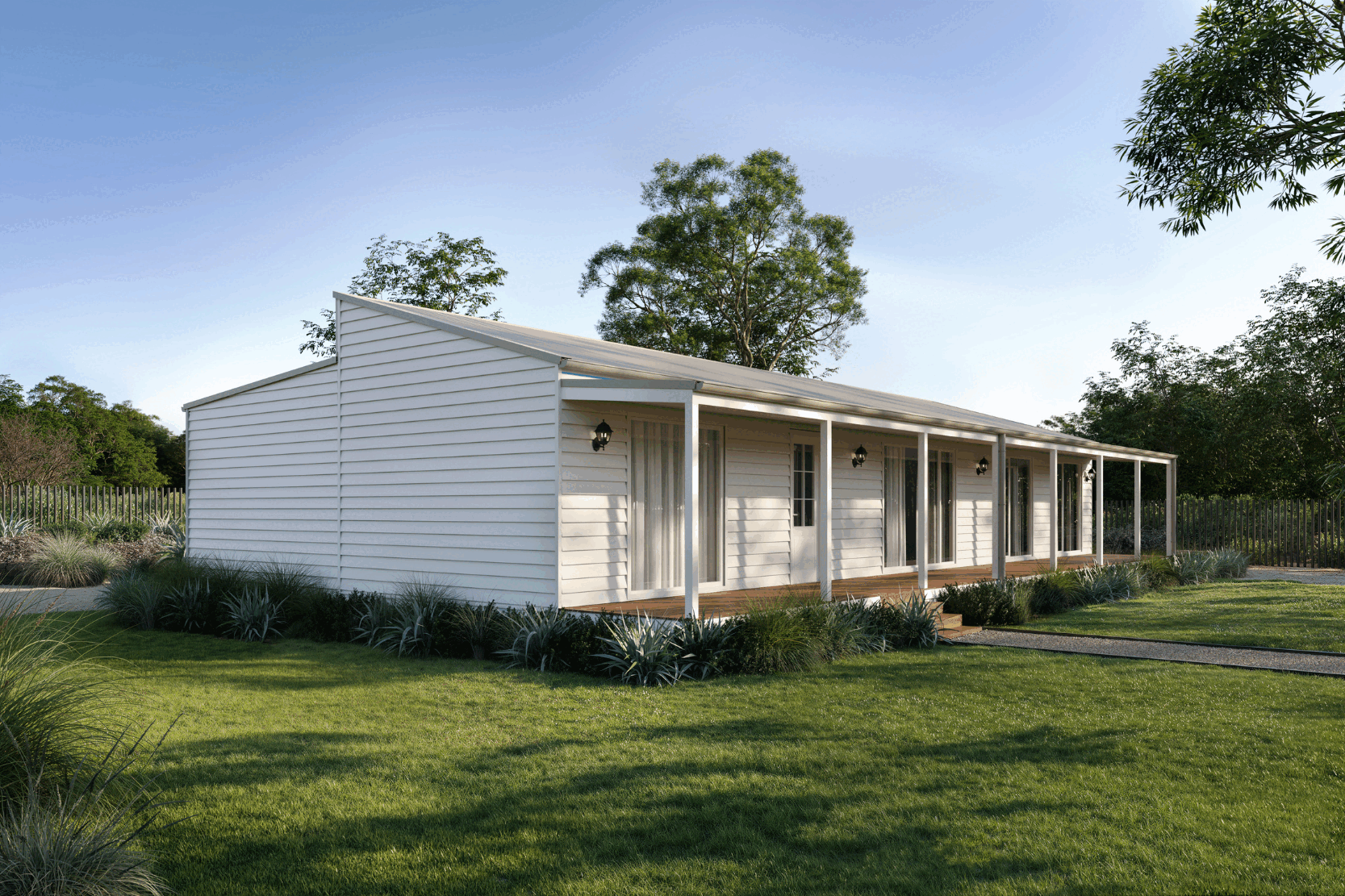Article
Modular Homes: The Future of Remote Work and Housing
Modular construction
June 21, 2024
Written by
Alana McNab
.png?width=770&height=494&name=Blog%20Images%20(29).png) In recent years, the remote work revolution has dramatically reshaped our professional and personal lives. This paradigm shift, accelerated by the global pandemic, has freed many employees from the confines of traditional office spaces, enabling them to work from virtually anywhere.
In recent years, the remote work revolution has dramatically reshaped our professional and personal lives. This paradigm shift, accelerated by the global pandemic, has freed many employees from the confines of traditional office spaces, enabling them to work from virtually anywhere.
As a result, there has been a significant change in housing needs, with modular homes emerging as a perfect solution for digital nomads and remote workers. These homes offer flexibility, sustainability, and efficiency.
Rise of Remote Work
Remote work is no longer a trend but a cornerstone of modern employment, with many companies worldwide have adopting flexible work policies.
This shift has led to a reevaluation of living arrangements. As employees are no longer tethered to their office locations, many are seeking alternatives to city apartments.
The freedom to choose living environments based on personal preferences rather than proximity to work has become a significant factor in the housing market.
Changing Housing Needs
 The traditional urban apartment once held the appeal of being close to work, amenities, and social activities. However, with the rise of remote work, the drawbacks of city living—such as high costs, noise, and limited space—have become more apparent.
The traditional urban apartment once held the appeal of being close to work, amenities, and social activities. However, with the rise of remote work, the drawbacks of city living—such as high costs, noise, and limited space—have become more apparent.
 Remote workers are now prioritising space, comfort, and quality of life over urban convenience. This shift is driving interest in rural and suburban areas where housing options are more spacious and comfortable.
Remote workers are now prioritising space, comfort, and quality of life over urban convenience. This shift is driving interest in rural and suburban areas where housing options are more spacious and comfortable.
.png?width=770&height=494&name=Blog%20Images%20(33).png) However, rural living has its challenges, including the availability of construction services and the time required for traditional building methods. This is where modular homes come into play, providing a compelling solution that combines the best of both worlds.
However, rural living has its challenges, including the availability of construction services and the time required for traditional building methods. This is where modular homes come into play, providing a compelling solution that combines the best of both worlds.
Modular Homes for Digital Nomads
For digital nomads and remote workers, modular homes present an ideal living solution. Here’s why:
1. Build Time and Efficiency
 One significant advantage of modular homes is the reduced build time. Traditional construction in rural areas can be hampered by a shortage of available trades and long wait times.
One significant advantage of modular homes is the reduced build time. Traditional construction in rural areas can be hampered by a shortage of available trades and long wait times.
 Modular homes are pre-built in a factory to 90-95% completion in modules, then transported to the site. This means that our skilled construction team can quickly and efficiently complete the build, with minimal site work required after installation. This process allows you to move in faster with less stress.
Modular homes are pre-built in a factory to 90-95% completion in modules, then transported to the site. This means that our skilled construction team can quickly and efficiently complete the build, with minimal site work required after installation. This process allows you to move in faster with less stress.
2. Flexibility and Mobility
 Modular homes provide the flexibility to live and work from almost anywhere. Digital nomads can choose to build a modular home off-site and have it delivered to their site in a tranquil rural area, avoiding long construction delays, limited availability of trades, and unpredictable weather conditions often associated with traditional on-site building methods.
Modular homes provide the flexibility to live and work from almost anywhere. Digital nomads can choose to build a modular home off-site and have it delivered to their site in a tranquil rural area, avoiding long construction delays, limited availability of trades, and unpredictable weather conditions often associated with traditional on-site building methods.
3. Customisation and Comfort
.png?width=770&height=494&name=Blog%20Images%20(32).png) Remote workers often require specific features in their homes, such as dedicated office spaces and soundproofing. Modular homes can be customised to include these features, ensuring a comfortable and productive work environment.
Remote workers often require specific features in their homes, such as dedicated office spaces and soundproofing. Modular homes can be customised to include these features, ensuring a comfortable and productive work environment.
4. Sustainability
.png?width=770&height=494&name=Blog%20Images%20(30).png) Sustainability is a crucial factor for many digital nomads. Modular homes frequently use eco-friendly materials and energy-efficient designs, helping to minimise their environmental impact. Modular homes can also be constructed as an off-grid home, further enhancing their sustainability and reducing reliance on traditional energy sources.
Sustainability is a crucial factor for many digital nomads. Modular homes frequently use eco-friendly materials and energy-efficient designs, helping to minimise their environmental impact. Modular homes can also be constructed as an off-grid home, further enhancing their sustainability and reducing reliance on traditional energy sources.
Additionally, constructing modular homes in an off-site factory setting reduces waste because surplus materials can be properly stored and reused for future projects, unlike traditional construction methods. This construction methodology typically aligns with the values of remote workers who prioritise sustainability in their lifestyle choices.
5. Site Impact
 Building modular homes has less impact on the site compared to traditional construction. The majority of the work is done off-site in a controlled factory environment, which means less noise, waste, and disruption to the surrounding area during construction. This is particularly beneficial in suburban and rural settings where preserving the natural environment is often a priority.
Building modular homes has less impact on the site compared to traditional construction. The majority of the work is done off-site in a controlled factory environment, which means less noise, waste, and disruption to the surrounding area during construction. This is particularly beneficial in suburban and rural settings where preserving the natural environment is often a priority.
The Future
.png?width=770&height=494&name=Blog%20Images%20(34).png) The future of remote work and housing is undeniably intertwined, with modular homes offering a compelling solution for digital nomads and remote workers. These homes provide the flexibility, customisation, and efficiency needed to thrive in a remote work environment. As more individuals embrace the remote work lifestyle, the demand for modular homes is expected to grow, driving innovation and expansion in the modular home industry.
The future of remote work and housing is undeniably intertwined, with modular homes offering a compelling solution for digital nomads and remote workers. These homes provide the flexibility, customisation, and efficiency needed to thrive in a remote work environment. As more individuals embrace the remote work lifestyle, the demand for modular homes is expected to grow, driving innovation and expansion in the modular home industry.
 For those seeking a sustainable, efficient, and flexible living solution, modular homes represent the future of housing and offer an ideal setting for remote workers. As we continue to navigate the evolving landscape of work and home life, modular homes will undoubtedly play a pivotal role in shaping our living environments.
For those seeking a sustainable, efficient, and flexible living solution, modular homes represent the future of housing and offer an ideal setting for remote workers. As we continue to navigate the evolving landscape of work and home life, modular homes will undoubtedly play a pivotal role in shaping our living environments.
Over To You
If you’re keen to kickstart your own modular home project, we’d love to help. Talk to our expert team or book a time to visit our display homes and take the first step towards making your dream home happen!




.png?width=768&height=492&name=Blog%20Images%20(36).png)

.png?width=768&height=492&name=Blog%20Images%20(35).png)

-1.png)

